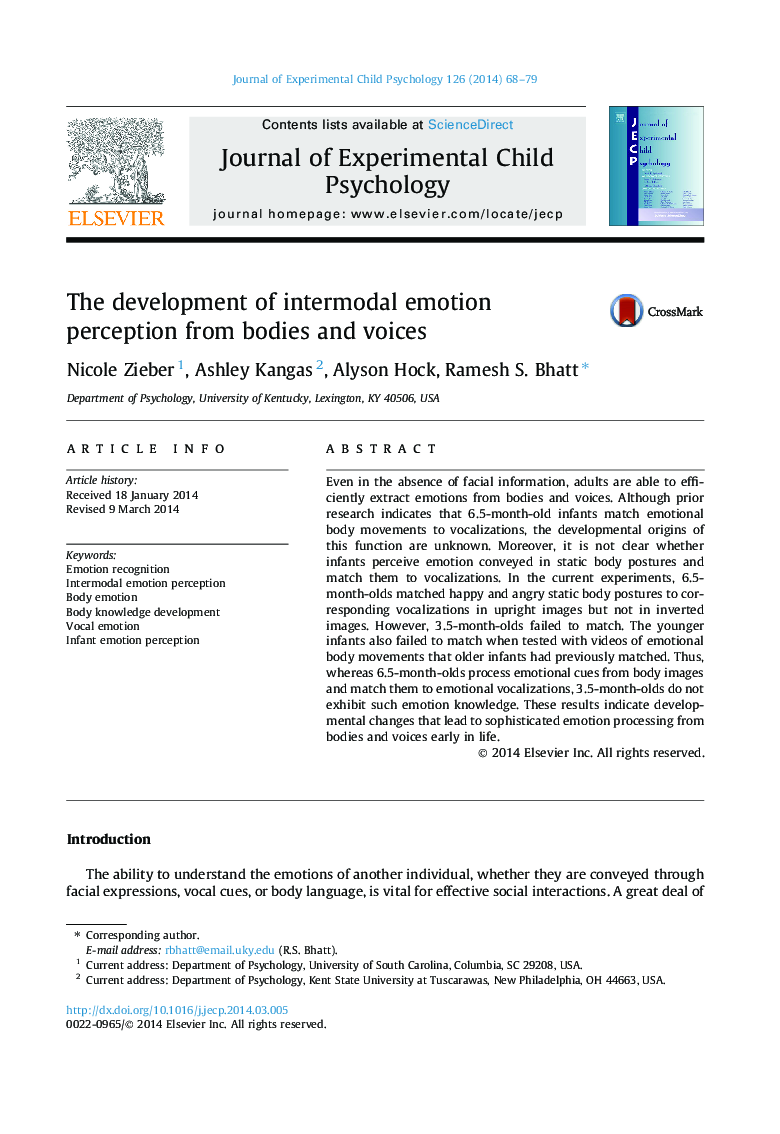| Article ID | Journal | Published Year | Pages | File Type |
|---|---|---|---|---|
| 7275289 | Journal of Experimental Child Psychology | 2014 | 12 Pages |
Abstract
Even in the absence of facial information, adults are able to efficiently extract emotions from bodies and voices. Although prior research indicates that 6.5-month-old infants match emotional body movements to vocalizations, the developmental origins of this function are unknown. Moreover, it is not clear whether infants perceive emotion conveyed in static body postures and match them to vocalizations. In the current experiments, 6.5-month-olds matched happy and angry static body postures to corresponding vocalizations in upright images but not in inverted images. However, 3.5-month-olds failed to match. The younger infants also failed to match when tested with videos of emotional body movements that older infants had previously matched. Thus, whereas 6.5-month-olds process emotional cues from body images and match them to emotional vocalizations, 3.5-month-olds do not exhibit such emotion knowledge. These results indicate developmental changes that lead to sophisticated emotion processing from bodies and voices early in life.
Keywords
Related Topics
Social Sciences and Humanities
Psychology
Developmental and Educational Psychology
Authors
Nicole Zieber, Ashley Kangas, Alyson Hock, Ramesh S. Bhatt,
